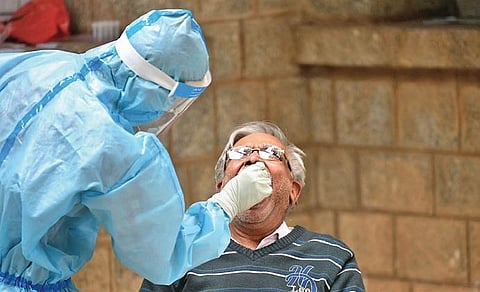

BENGALURU: One of the effects of Covid is clot formation which can affect the heart or lungs of a patient.
Due to this, doctors are prescribing blood thinners, like aspirin, for moderate and severe corona patients, both during treatment and for two to four weeks post recovery as well.
“Depending on the severity of infection, there can be inflammation of blood vessels. This causes a clot in the leg veins that can move to the lungs. This is called Pulmonary Embolism and is life-threatening. If it blocks the lung arteries, the whole circuit gets blocked and the blood cannot get purified,” said Dr Ranjan Shetty, HoD and consultant, Interventional Cardiology, Manipal Hospitals.
Covid itself is a thrombogenic disease and it precipitates clot formation. The clot in the lungs can be partial or complete. Another effect of coronavirus is the inflammation of heart muscles called myocarditis, which leads to heart failure.
“Cardiac involvement in terms of heart attacks or heart failure is seen in 20-25 per cent of Covid patients. Therefore, early use of blood thinners like Ecosprin, antithrombotics like unfractionated Heparin or low molecular weight Heparins are paramount in preventing these complications during treatment,” said Dr Rajpal Singh, Director-Interventional Cardiologist, Fortis Hospital.
Dr Singh added that these medications are continued for four to six weeks after discharge and should be taken only on prescription.
The probability of clot formation is higher if the severity of Covid is higher as well, said Dr Girish Navasundi, senior consultant, Cardiologist, Apollo Hospitals.
“The less mobile a patient is, longer the clot lasts. Patients are given injectable blood thinners for two weeks during Covid treatment, as this is when there is active multiplication of the virus and direct damage to the body. They are vulnerable to clots even post-discharge, especially in the 45 and older age group,” Dr Navasundi said.